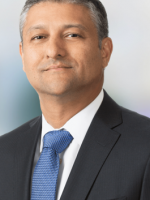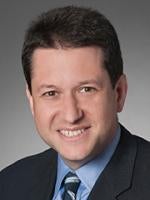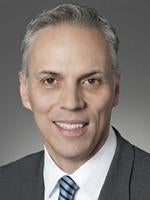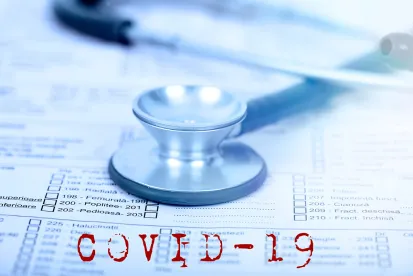In response to the COVID-19 pandemic, Congress has allocated trillions of dollars to help businesses and individuals weather a period of historic economic challenge. Government assistance programs of this scale, however, almost inevitably attract close scrutiny from law enforcement officials and regulators, and recipients of such assistance may find themselves subjects of government investigation and prosecution for alleged failure to comply with all program requirements. Indeed, the United States Attorney General has already directed that every US Attorney’s Office “prioritize the detection, investigation and prosecution of all criminal conduct” related to the pandemic. In response, federal prosecutors and regulators have ramped up their efforts to investigate and prosecute COVID-19-related fraud. Such anti-fraud initiatives are likely to intensify over the coming months and years. This advisory provides guidance on the types of criminal and regulatory investigations the government is likely to pursue and the areas where enforcement activity will likely be most concentrated.
Health Care Fraud and the False Claims Act
The CARES Act provides $100 billion dollars to reimburse health care providers for lost revenue and increased expenses caused by the pandemic. The Act tasks the Department of Health and Human Services (HHS) with distribution and oversight of these funds. Providers receiving money from the program must agree to use the funds for certain limited purposes. For example, the money can only be used to offset increased health care-related expenses or compensate for revenue lost as a result of the coronavirus pandemic. Providers who received funding in excess of lost revenue must return the relief payments. Additionally, providers cannot use relief funds to cover losses that were or should have been reimbursed from other sources. Further, providers who receive more than $150,000 are required to submit quarterly reports detailing the projects or activities for which the funds were used.
HHS has made clear that there will be “significant anti-fraud monitoring” of CARES Act payments. Given the scope of the program and the speed with which such large amounts of money are being distributed, it is likely that federal law enforcement and regulatory agencies will be actively probing whether health care providers:
- use CARES Act funds solely for COVID-related expenses and losses;
- could or should have been reimbursed from other sources for COVID-19-related losses; and
- submitted accurate quarterly reports.
The discovery of any intentional misrepresentations by providers will likely result in health care fraud or wire fraud charges being filed by federal prosecutors. Prosecutors are expected to aggressively pursue such cases.
The CARES Act also is likely to result in increased whistleblower complaints under the False Claims Act (FCA). The FCA imposes civil liability on individuals and entities who defraud the federal government. The law enables whistleblowers to file actions on behalf of the government and to receive a portion of any damages recovered as a result of fraudulent claims for payment submitted to receive government funds. The Department of Justice evaluates every FCA case and has the option of intervening in the matter. The Department already dedicates substantial resources to investigating health care-related FCA whistleblower complaints. Such cases often originate from health care provider employees who make allegations that the provider is making false representations to obtain federal money. Due to the large amount of money involved, the lucrative awards whistleblowers could obtain and the heightened focus on COVID-19, the CARES Act likely will result in a significant increase in whistleblower complaints and ensuing government investigations into providers who receive CARES Act funding.
Paycheck Protection Program
The CARES Act also provides hundreds of billions of dollars in forgivable loans for distribution to small businesses through the Paycheck Protection Program (PPP). In order to obtain the funds, businesses must submit loan applications setting forth the business’s average monthly payroll, the number of employees, and the purpose of the loan. They must also make several certifications, including that: (1) the current economic uncertainty makes the loan necessary to support ongoing business operations; (2) the funds will be used to retain workers or make mortgage, lease, or utility payments; and (3) they understand that the loans will be forgiven only if 25 percent or less of the money is used for non-payroll costs.
Federal law enforcement officials are closely monitoring these applications and are likely to investigate and prosecute any material misrepresentations made to obtain PPP funding. One such prosecution already has been brought by the Department of Justice in the District of Rhode Island, where multiple individuals were charged for conspiring to commit bank fraud by allegedly making false representations on PPP loan applications, including that their businesses had several employees, when, in reality, the businesses were not operating prior to the pandemic.
Also, just last week on May 13, the US Attorney’s Office for the Northern District of Georgia charged a reality TV personality for committing bank fraud by allegedly obtaining a PPP loan by representing that his trucking business had 107 employees, and then using the proceeds of the loan to purchase jewelry, lease a luxury car and pay child support. The speed with which these prosecutions have commenced is a good indication of the priority that the federal government is placing on safeguarding PPP funds.
Finally, in addition to criminal investigations, the Securities and Exchange Commission’s (SEC) Enforcement Division is reportedly making inquiries into public companies who have received PPP loans, seeking information regarding the companies’ qualifications to receive the loans. Thus, the SEC is likely to play an active role in monitoring PPP loans as well.
Hoarding and Price Gouging
COVID-19 has created heightened demand for certain goods, including Personal Protective Equipment (PPE), such as N-95 masks, disposable gloves and face shields. To combat hoarding and price gouging of these products, the Department of Justice established the COVID-19 Hoarding and Price Gouging Task Force, which is led by the US Attorney for the District of New Jersey. The Task Force has been very active, already charging multiple defendants.
For example, one defendant has been charged with violating the Defense Production Act for hoarding several tons of PPE, including N-95 masks, for the purpose of selling them far in excess of market prices. While there is not a specific federal felony specific to price gouging, the defendant was charged with a misdemeanor that makes it a crime to accumulate materials that have been deemed scarce by the President in excess of the reasonable demands of business or for the purpose of selling the materials above market prices. The Department of Justice’s willingness to charge even a misdemeanor in this case shows the seriousness with which they are approaching hoarding and price gouging.
State Law Enforcement Activity
In addition to federal law enforcement, state authorities also have taken significant enforcement actions in light of COVID-19. Some states have specific price gouging laws on their books and are investigating potential violators. Further, COVID-19 has caused many fatalities in nursing homes and state law enforcement authorities are actively probing whether any of those deaths were the result of wrongdoing at such facilities. For example, the New Jersey Attorney General has announced that he has opened both a civil and criminal investigation into certain nursing homes, probing the conduct of those facilities before and after individuals died as a result of COVID-19.
COVID-19 already has resulted in significant law enforcement activity. As the health and economic fallout from the crisis continues, these efforts will only intensify, resulting in increased health care, fraud and FCA investigations and prosecutions in the near future.






 />i
/>i
